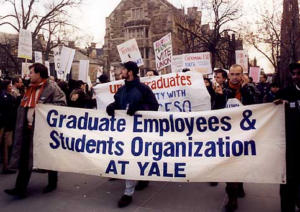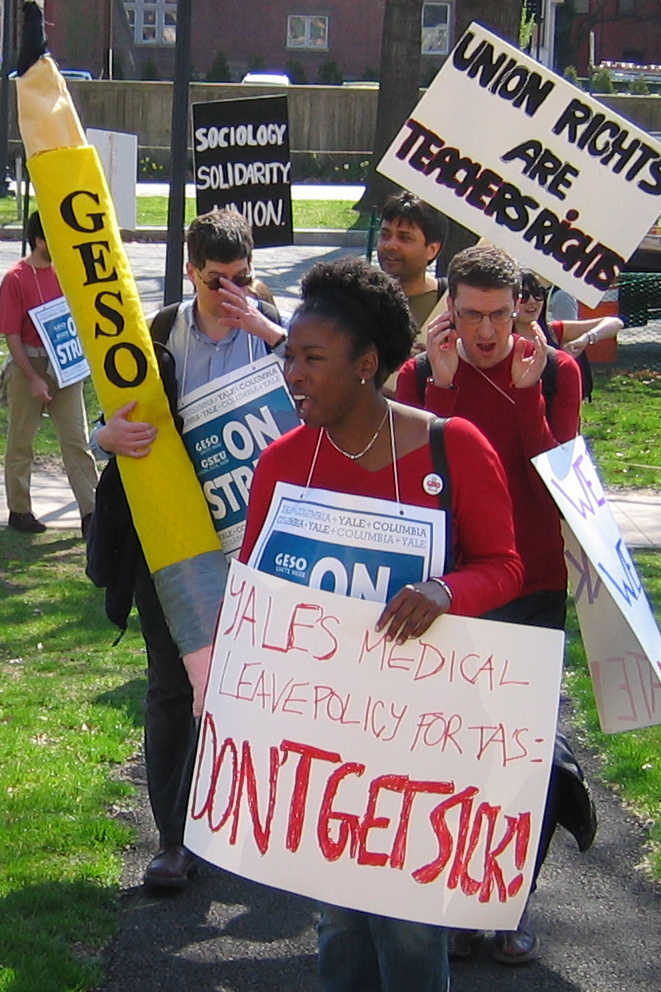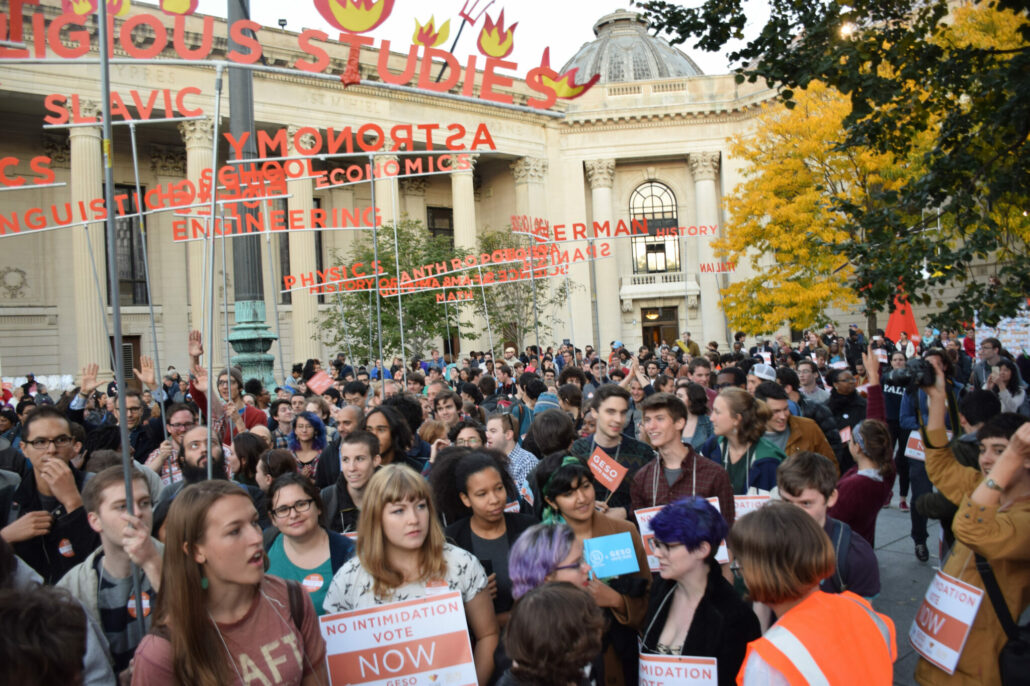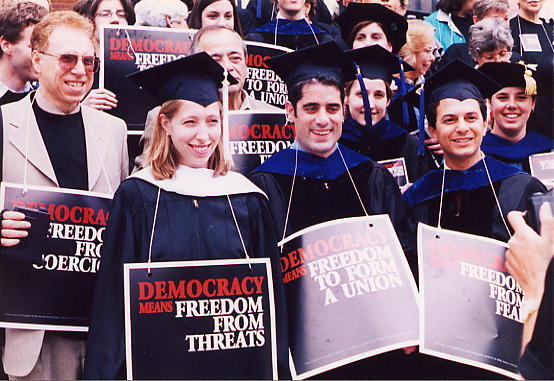
Graduate workers have organized at Yale since the 1980s in solidarity with other campus workers and for a recognized union of their own. Members of Local 33 and its predecessors, TA Solidarity and the Graduate Employees and Students Organization (GESO), have organized for decades for better pay; parental leave; endowment divestment from private prisons and Puerto Rican debt; family and dependent healthcare; protections for international student workers; access to better mental health care; and many other issues that impact the lives of graduate workers at Yale.
In October 2022, graduate workers filed for a union recognition election overseen by the National Labor Relations Board (NLRB). In the election, which was held in November and December of 2022, 91 per cent of graduate workers voted union yes. In March 2023, the elected bargaining committee of Local 33 began negotiations with Yale for a first contract. After nine months of negotiations, we reached a settlement for an historic first contract guaranteeing better pay, improved benefits, and significant workplace protections for graduate teachers and researchers.
Our contract was ratified in December 2023, and will be in effect until July 2028.
Elected Leadership
Officers
- Adam Waters, President
- Arita Acharya, Secretary-Treasurer
- Andrea Ho, Vice President and Chief Steward for Region A
- Sasha Tabachnikova, Vice President and Chief Steward for Region B
- Sydney Shuster, Vice President and Chief Steward for Region C
Executive Board
- Region A: Christina Cano, Javier Porras Madero
- Region B: Rachel Heuer, Ben Sanders
- Region C: Ellie Browne, Jingjun Liu
- At-Large: Chris Camp, Andrew Neely, Buğra Mirsat Sahin, Paul Seltzer
Trustees
- Micah English
- Curtis McDonald
Region A: Humanities, Languages, Social Sciences, MacMillan Center/Area Studies, Schools of Art, Architecture, Drama, Law, Music
Region B: Combined Program in Biological and Biomedical Sciences, Schools of Medicine, Nursing, Public Health
Region C: Physical Sciences, Schools of Engineering and Applied Science, Management, Global Affairs, Divinity and Environment





Local 33 is part of a coalition of other unions, community, and student organizations fighting for racial and economic justice at Yale and in New Haven. Together, we represent thousands of people who live, work, and study in New Haven and across the state.
Local 33 is affiliated with UNITE HERE, a union that represents about 300,000 workers in the United States and Canada, primarily in the hotel, gaming, food service, manufacturing, textile, distribution, laundry, transportation, and airport industries.
We are proud to be part of a union that is predominantly women and people of color, has members from all over the world, and is building a movement to enable people of all backgrounds to achieve greater equality and opportunity.